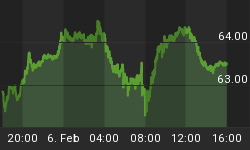"You can fool all the people all the time if the advertising budget is big enough." ~ Ed Rollins
Portugal has just had its credit rating cut and both Greece and Spain are now begging the EU to set up a bailout fund to help the beggar nations (PIIGS) who are unwilling to curb their spending habits. In our previous article, we made the following comments.
Indirectly they have been begging for assistance from the very start. This aid package will trigger other beggar members of the PIIGS group to eventually join the handout club. Next in line is probably Spain. If the top members of the EU wanted to send a strong message to the weak members they should have stuck hard and fast to their previous claims that no aid would be forthcoming. Euro Woes, Part II: Have We Entered the Devalue or Die Era?
Now that Portugal has its credit rating lowered, Spain has started making noise about setting up a bailout fund. Not too long ago they stated that all was well, and that they should not be compared with Greece. Ironical is it not that they have now joined up with Greece in demanding a fund be set up to help nations that are having problems financing their debt.
French and Germany appear to have reached some agreement (the key word being appear) as indicated by the story below
The safety net - not yet agreed by the whole eurozone - would total about 22bn euros (£20bn). It would apply only if market lending to Greece dried up. Eurozone countries would grant co-ordinated bilateral loans, and there would be "substantial" IMF loans. The "majority" funding would be European. EU leaders are poised to discuss the plan at a two-day summit in Brussels. Full Story
We could go on about the potential ramifications of the above idea but there is something that is more interesting that we would like to speak off.
Germany and France knew that they would eventually come to the table and approve some sort of package even though they made a lot of noise about doing nothing in the beginning. No one has bothered to ask why. The reason is by playing this cat and mouse game, they have allowed the Euro to lose a significant portion of its value; in effect, they indirectly devalued their currency without actually officially having to do so. Each time they put out a story to calm the markets they leave room to change their position. The story above and the just released story below are perfect examples of such ploys in action. While France and Germany have agreed to set up a fund, they leave extra wiggle room by stating that this matter would still need approval from the whole euro zone.
The market's advance fizzled after European Central Bank's president Jean-Claude Trichet told French television that Europe must take responsibility for its financial problems. That raised concerns about when a rescue for Greece might come. Officials from European nations were meeting late Thursday to discuss their economic problems.
Investors have been concerned for months that problems in Greece and other debt-strapped countries in Europe would spread and spoil a global economic rebound.
"Any time we see comments about it it seems to spook the market," said Adam Gould, senior portfolio manager at Direxion Funds in New York, referring to Greece's financial problems. He said traders still expect Greece will get a bailout but the questions about how unnerved investors. "It's more the uncertainty." Full story
A single nation can easily devalue its currency but in the Euro zone a single nation does not have this power. The large members can, however, pretend like they are not willing to help the smaller weaker members and thereby create a mini confidence crisis; the net result the Euro loses some of its value.
The US is deflating its currency by printing money at a stupendous rate, China is devaluing its currency by pegging it to the weak Dollar and countries like Vietnam simply openly devalue their currency in order to maintain a competitive edge. Expect this trend to pick up steam; it's now going to be a race to the bottom of the pit, and it will only end with a full blow currency crisis. Investors should make sure they have a position in precious metals (Gold, Silver, Platinum, etc), as it's the safest and easiest method out there to protect yourself from inflation, the silent killer tax. Don't think of it as investment, think of it as insurance just in case the house burns down. Use pull backs to add to open up positions and strong pull backs to add to your position.
"He who doesn't have legs cannot teach one how to walk." ~ unknown















